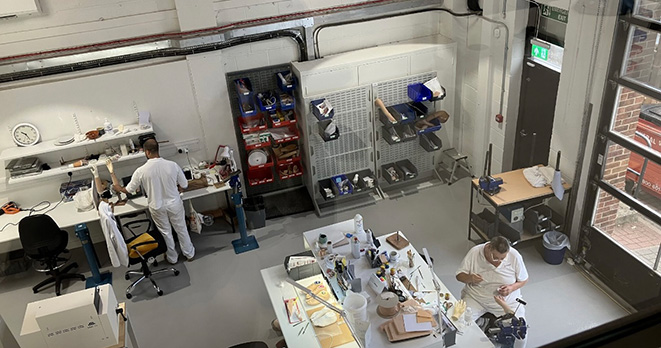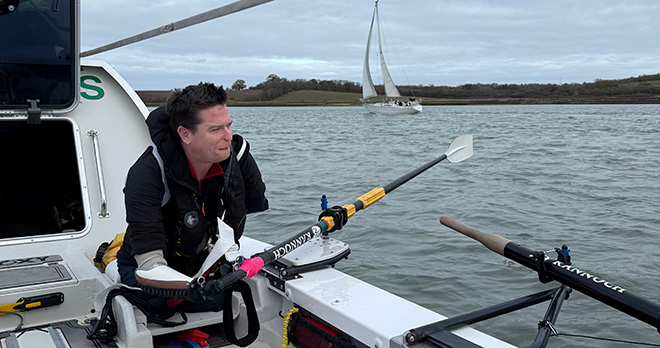When is someone liable for an amputation injury? What you might need to know about causation.

When you’ve suffered an amputation, whether as a result of an accident or after a medical incident, you may be left wondering whether you can make a claim. Here, we help explain what you need to know about proving someone was at fault, known as liability. Liability is a two-part test made up of breach of duty and causation. This article focuses on causation.
When can you make a claim for an amputation?
Accidents causing injury.
You may have had to undergo an amputation or lost a limb as the direct result of an accident, which might give rise to a claim for compensation.
You may have experienced amputation following:
- a road traffic accident;
- an accident at work;
- an injury caused by an animal;
- an accident on holiday or overseas.
Where that accident was caused by another person or company’s negligence, you may have the right to claim compensation.
Medical negligence causing injury.
Amputation following medical negligence, whether because of a misdiagnosis or a surgical error, can give rise to a claim for compensation. Examples include:
- Deep Vein Thrombosis (DVT) misdiagnosis;
- delayed diagnosis of sepsis;
- incorrect care of diabetes;
- infection in a wound;
- misdiagnosis of cancer;
- meningitis.
If you think you have suffered an amputation as a result of medical negligence, it is best to seek legal advice as soon as you can to consider whether compensation may be payable.
At this stage it is worth clarifying that the purpose of compensation is to put you back in the position you would have been in, as far as is possible, had the negligence never occurred. A wide range of rehabilitation measures will be considered, to include for instance, custom prosthetics, adaptations to your home, physiotherapy, hydrotherapy, occupational therapy and counselling.
Accidents and subsequent medical negligence.
On occasion, it can be difficult to determine whether the loss of a limb arose as a direct result of an initial accident or injury, or as the result of medical negligence.
An initial accident may have required some medical intervention, however where that medical treatment was negligent, the defendant in the initial claim may argue that they should not be held responsible for the intervening event.
In this scenario, it is important to establish if the intervening event was foreseeable or a natural consequence of the initial action. If not, the intervening act may ‘break the chain’ of causation (more on this term below). This could actually give rise to two separate claims: one against the original defendant and the second against the negligent medical practitioner.
If you are unsure whether your amputation arose as the result of either an initial accident or medical negligence, you should seek legal advice so that a specialist amputation claims solicitor can conduct a detailed review of the medical records and if appropriate, seek an independent medical expert’s opinion.
View our recent podcast - What you need to know about crossover claims:
Who is liable for an accident or medical negligence?
In order to bring a claim for compensation, it has to be determined who is liable to pay said compensation. Liability is split into two parts: breach of duty and causation.
We first need to establish whether a duty of care existed and if so, whether there has been a breach of said duty.
In cases of medical negligence this will mean establishing whether the standard of care received fell below the standard required of a reasonably competent practitioner in the same discipline.
In personal injury cases, establishing a breach of duty will depend upon the cause of the accident, for example in a road traffic accident involving another vehicle, it must be proven that the defendant’s standard of driving fell below the standard of a reasonable careful driver and the accident was caused as a result.
What does causation of injury mean?
If a breach or breaches of duty are established, next we need to establish causation i.e. whether the identified breach(es) of duty caused or materially contributed to an outcome that would have otherwise been avoided.
In the case of an amputation, we would ask “but for the negligence, would the amputation have occurred?”
How is causation proven?
Expert evidence is required to show causation. In cases of medical negligence, an expert in the same medical field as the relevant practitioner will be instructed to prepare a causation report.
In an amputation claim, this might include experts in the fields of vascular surgery and trauma & orthopedic surgery.
In the expert reports, the experts will consider the evidence, to include your medical records and witness statement, and provide a full, detailed, impartial and evidence-based opinion on whether the breach(es) identified on the balance of probabilities caused your injury, the amputation.
In coming to their conclusion, the expert will apply the legal tests outlined above within their report and use the relevant professional guidance, NICE guidelines and evidence-based research.
In a personal injury claim involving a traumatic amputation establishing causation can often be relatively straightforward or uncontested.
‘Breaking the chain’ of causation.
A new intervening event or act, known in law by the latin phrase Novus actus interveniens, could break the causal link between a Defendant’s original negligence and the resulting consequences, such that the Defendant cannot be held responsible for the resulting damage.
The question of whether an intervening act has broken the chain of causation requires careful consideration of a multitude of factors. The court, with the assistance of expert evidence, must assess whether the original defendant should be responsible for the ultimate damage and loss, assessing whether the intervening act or event was reasonably foreseeable . If the intervening act was foreseeable or a natural consequence of the original defendant’s negligence, then liability for the consequences may still be attributable to them.
Does the amputation need to have occurred directly after injury?
An amputation does not need to occur directly after the injury, but you should be aware that there is a statutory limitation period of three years from the date of an accident or date of knowledge, for either personal injury or medical negligence claims to be brought.
The date of knowledge is when you could reasonably be expected to know that the injury was significant and attributable to the identified negligence.
What if there are multiple causes for an amputation?
Causation in medical negligence cases can be complicated. There may be many factors which are involved in causing an injury, some of which are due to negligent acts and others that are not. If the outcome would have been the same notwithstanding any negligence acts contributing, then there will be no claim. If, however, you cannot determine and apportion what damage has been caused by each factor involved, then you will recover damages in full. This is known as material contribution.
If you have experienced limb loss as a result of an accident or medical negligence, please get in touch with us by contacting
Call now









